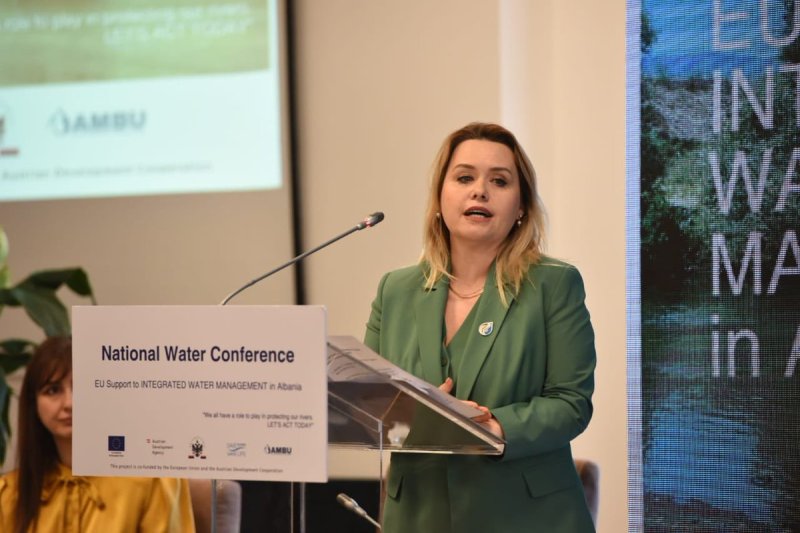Committee Okays EUR 75.5M IBRD Deal
The Parliamentary Committee on Economy and Finance approved on Tuesday the draft law "On the ratification of the loan agreement, between the Republic of Albania and the International Bank for Reconstruction and Development, for the project "Clean and Regenerative Environment, Blue Sea". The fund for the implementation of the projects amounts to Euro 75.5 million. IBRD is the lending arm of the World Bank Group.
The Deputy Minister of Tourism and Environment Almira Xhembulla said that "the fund will support the attraction of more elite tourists to the Vjosa River."
According to her, the purpose of the draft law is to reduce pollution in the water environment in selected areas of the southwestern coastal belt of Albania.
Xhambulla said that the objectives that the project aims to achieve are related to the promotion of integrated circular approaches for the protection of landscapes and water resources, the reduction of water pollution in the Vjosa River, and the expansion of sanitary infrastructure.
The project will have a positive impact on the environment in the long term because it aims to improve municipal public services through the controlled and sustainable management of municipal solid waste and polluted water.
Albania is improving the legal framework for waste management, aligning it with that of the EU. The New National Integrated Waste Management Plan 2020–2035 aims to incorporate circular economy principles into the national waste management system. Therefore, the focus on pollution reduction and prevention measures will include investments in gray and green infrastructure as well as human capital for behavior change.
After discussions, comments, and various suggestions, members of the committee approved this draft law in principle, article by article, and as a whole.
This Program aims to improve the operational and financial performance of water supply and sanitation utilities and to increase access to safe water services in Albania.
Albania does not lack adequate water resources and therefore should be able to provide its entire population with safe and fresh drinking water. In recent years, Albania has developed a strong regulatory framework for water services delivery and introduced changes in institutional arrangements to improve service delivery.
Nevertheless, most of the water utilities in Albania continue to perform poorly, both technically and financially. This results in low levels of service to the population and to businesses, and an inability to extend services to those without them, especially the most vulnerable in the peri-urban and rural areas of the country. Around 20 percent of the rural population has no piped access at home. Most utilities are chronically dependent on central government funding. 37 out of the 58 municipal water companies continued to rely on budget support. The Water Supply and Sanitation (WSS) sector needs reforms in its governance and organizational models to improve and achieve national targets.
The financing will be channeled into three directions: promotion of an integrated approach towards environmental protection, reduction of pollution in one of Europe’s last wild rivers, the Vjosa River, and management, monitoring, and assessment of the initiatives.













